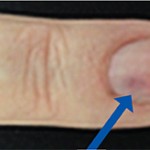ZURICH (Reuters)—Novartis AG has struck a $170 million alliance with U.S.-based Surface Oncology as it seeks to boost its portfolio of medicines that help the body’s immune system fight cancer.
The accord, which it announced on Monday, gives Novartis access to four pre-clinical programs aiming to help prevent tumors from evading the immune system, including one that targets regulatory T cell populations that can migrate into tumors and impair the body’s ability to fight the disease.
Novartis has been expanding its cancer-fighting arsenal by striking deals with smaller companies as it races to keep pace with rivals, including Roche, Merck and Bristol Myers.
Last year, Novartis acquired Admune Therapeutics and forged licensing agreements with small drug developers Xoma and Palobiofarma as part of this same push.
“This alliance is another building block in our strategy to develop a portfolio of programs that we believe will lead the next wave of immuno-oncology medicines,” says Mark Fishman, president of Novartis’s research arm, on the deal with Surface.
Surface Oncology Chief Executive Officer Detlev Biniszkiewicz was previously head of oncology strategy at AstraZeneca and a former manager at Novartis under Fishman.
The Surface programs that Novartis is buying access to also focus on inhibitory cytokines, which help suppress immune response, and immunosuppressive metabolites that may contribute to a cancer’s ability to survive.
Novartis plans to test Surfaces’ investigatory therapies as stand-alone monotherapies, as well as in combination with other drugs within its portfolios, the Swiss company says.
Under the terms of the agreement, Surface is eligible to receive up to $170 million in upfront, equity and near-term milestone payments, Cambridge, Massachusetts-based Surface says in a statement.
Surface is also eligible to get up to double-digit royalties on product sales, it says, adding the company has the option to retain U.S. development and commercialization rights for at least half of the collaboration’s programs.


